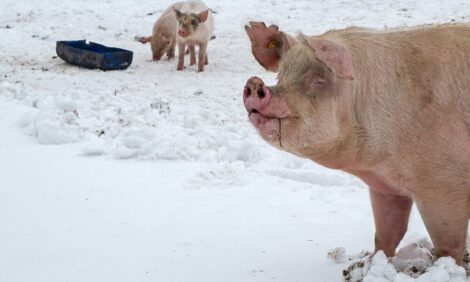



World's First Pigs Cloned by Robotic Instrument Born in Tianjin
CHINA - Recently, China proved its success in cloning pigs, as test results show the new-born pigs and their surrogate sows are unrelated.The two sows gave birth to 13 purebred baby pigs after a 110-day pregnancy in April.
The Robotics Institute at Nankai University in Tianjin headed the study on cloning pigs derived from somatic cells, in cooperation with the Animal Husbandry and Veterinary Research Institute.
The technique involved is called somatic cell nuclear transfer, a classic technique used for improving the variety of crops. It transfers the cell nucleus of a somatic cell into an egg without a nucleus.
The advantage of this method is that it guarantees the quality of the egg. However, the low rate of success limits the development of this technique.
Based on this technique, the research group invested an in-situ microanalysis micromanipulator that combined all the functions of testing, analysis, and operation into one instrument.
This robotic instrument made a great contribution in the process of removing a nucleus.
The key challenge is avoiding destroying the delicate cells during the process.
Researchers analyzed how much force was applied to cells by the instrument and then adjusted it to make sure the smallest possible force was applied when moving cells and removing nucleuses.
The deformational degree of cells decreased from 30~40 mm to 10~15 mm afterward, which remarkably improved subsequent development of cell.
Group leader Zhao Xin said the research built a connection between cell micro operation and cell development and can help others make more achievements.
The research has broad implications, and can be applied to assisted reproductive technology, plants and animals species improvement, family practice, animal production systems, and other areas.






